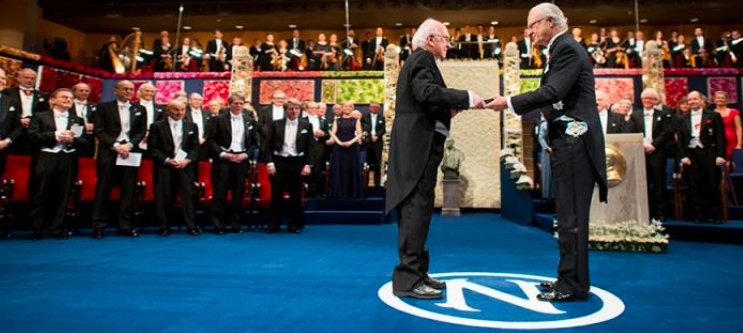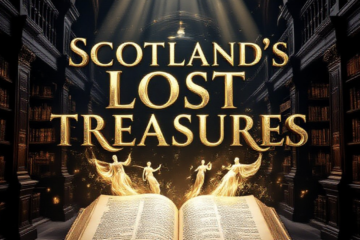Scotland is a small country with a big impact on the world. The nation has produced some of the most influential and innovative thinkers, scientists, writers, and peacemakers in history. Among them are 16 Scots who have won the Nobel Prize, one of the most prestigious awards in the fields of science, literature, and peace. Here are their stories and achievements.
Sir James Black: The Father of Analytical Pharmacology
Sir James Black was a Scottish physician and pharmacologist who established a Veterinary Physiology department at the University of Glasgow. He shared the Nobel Prize for Medicine in 1988 with Gertrude B. Elion and George H. Hitchings for their work in drug design which led to the development of propranolol and cimetidine. Propranolol is a beta blocker used to treat heart disease and cimetidine helps patients with stomach ulcers. Black’s discoveries have saved millions of lives and improved the quality of life for many more.
John Boyd Orr: The Champion of Food Security
Born in Kilmaurs, near Kilmarnock, Boyd Orr was a Scottish teacher, medical doctor, biologist, nutritional physiologist, politician, businessman and farmer who was awarded the Nobel Peace Prize in 1949 for his scientific research into nutrition and his work as the first Director-General of the United Nations Food and Agriculture Organization (FAO). He advocated for global cooperation to end hunger and poverty and promoted the idea of a world food board that would regulate food production and distribution. He also founded the World Academy of Art and Science, a non-governmental organization that promotes interdisciplinary research and dialogue.

Angus Deaton: The Economist of Well-Being
Edinburgh-born Sir Angus Deaton is a British economist and academic who was awarded the Nobel Memorial Prize in Economic Sciences in 2015 for his analysis of consumption, poverty, and welfare. He developed methods to measure how people’s living standards are affected by their income, health, education, and other factors. He also studied how policies can improve or worsen people’s well-being, especially in developing countries. He is currently a professor emeritus at Princeton University and a senior scholar at the Woodrow Wilson School of Public and International Affairs.
Alexander Fleming: The Discoverer of Penicillin
Born in 1881 at a farm in Ayrshire, Sir Alexander Fleming became one of Scotland’s most famous scientists. Fleming was a physician and microbiologist who discovered the world’s first antibiotic, penicillin, in 1928. He noticed that a mold growing on a petri dish had killed some bacteria that he was studying. He isolated the substance that had this antibacterial effect and named it penicillin. He shared the 1945 Nobel Prize in Physiology or Medicine with Howard Florey and Ernst Boris Chain, who developed penicillin into a drug that could treat infections. Penicillin has saved countless lives from diseases such as pneumonia, syphilis, gangrene, and meningitis.
Other Scottish Nobel Laureates: A Diverse Group of Achievers
The other 12 Scots who have won the Nobel Prize are:
- Sir William Ramsay (Chemistry, 1904) for his discovery of noble gases
- Lord Rayleigh (Physics, 1904) for his investigations on the density of gases
- Sir J.J. Thomson (Physics, 1906) for his discovery of the electron
- Sir Ronald Ross (Medicine, 1902) for his work on malaria
- Frederick Soddy (Chemistry, 1921) for his contributions to radiochemistry
- Sir Arthur Henderson (Peace, 1934) for his efforts to promote disarmament
- Sir Alexander Todd (Chemistry, 1957) for his synthesis of nucleotides
- Max Born (Physics, 1954) for his work on quantum mechanics
- Dorothy Crowfoot Hodgkin (Chemistry, 1964) for her determination of the structure of biochemical compounds
- Muriel Spark (Literature, 1969) for her novels that explore human psychology
- John Hume (Peace, 1998) for his role in the Northern Ireland peace process
- Peter Higgs (Physics, 2013) for his prediction of the Higgs boson


















